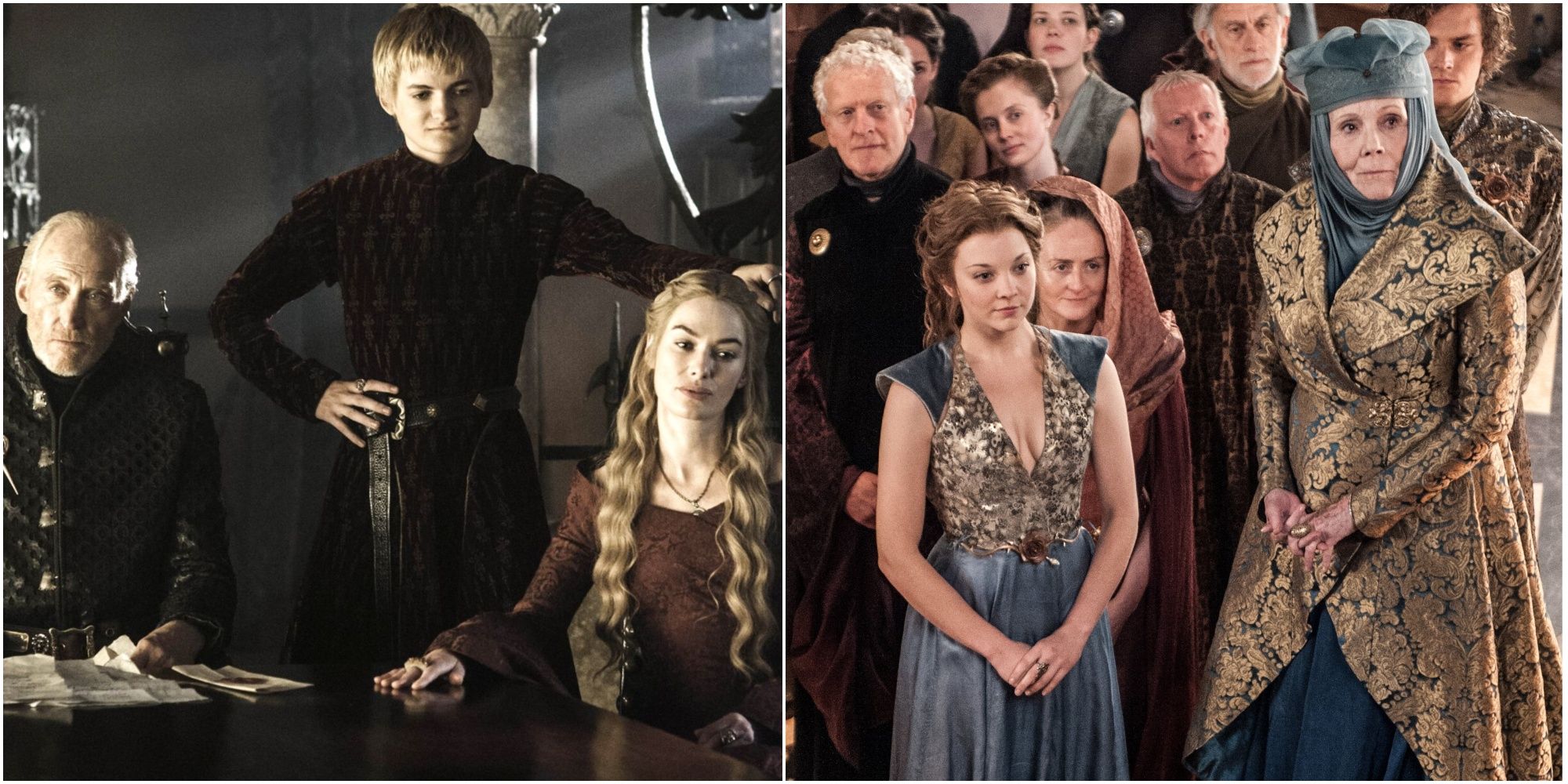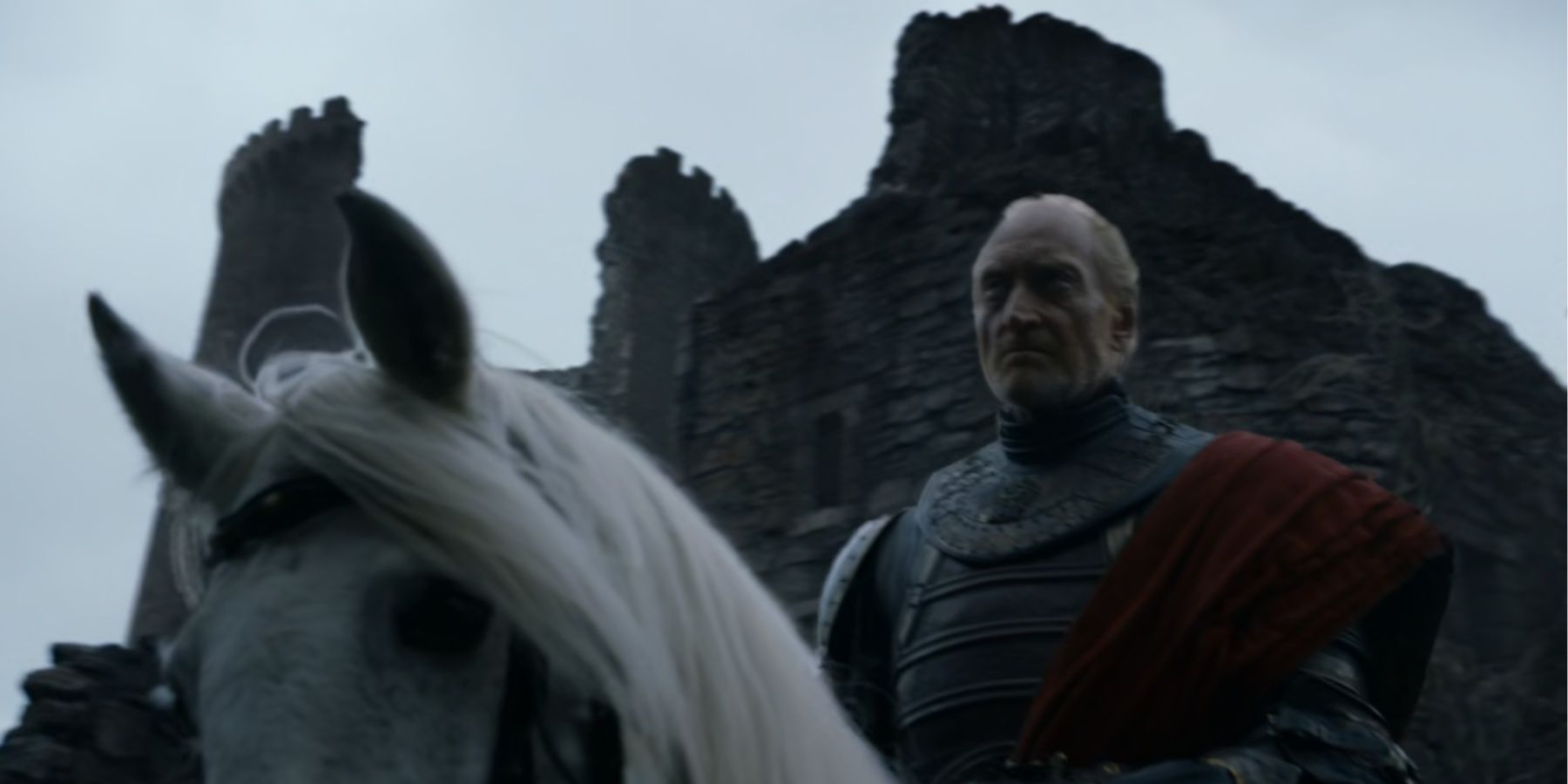Highlights
- The Targaryens, Baratheons, and Lannisters have held the hereditary monarchy in Game of Thrones, with power passed down through ruling families.
- The Great Houses, like Lannister and Stark, exercise authority over vassal Houses and once had political sovereignty over their own kingdoms.
- The Lannisters are the wealthiest House, with their riches coming from goldmines and their unofficial motto being "A Lannister always pays his debts." The Tyrells of Highgarden were also wealthy allies of the Lannisters.
Hereditary monarchy in Game of Thrones sees the throne pass from monarch to successor in the ruling families, namely the Targaryens and later, the Baratheons and the Lannisters. Westeros was united into a single political entity by Aegon Targaryen and his sister-wives with fire and blood. They achieved political unification of most of the continent, but one of the Seven Kingdoms, viz, the Principality of Dorne remained independent until the marriage of Princess Daenerys to Maron Martell, held at King's Landing in 187 AC.
As seen in Game of Thrones, the Great Houses are answerable to the one true power in Westeros - House Targaryen, later, Baratheon/ Lannister. These Great Houses exercise power and authority over the lesser Houses (vassal Houses) in their liege. Some of the Great Houses once had political sovereignty over their kingdoms and were once the ruling Houses. Examples include House Lannister in the Westerlands, House Arryn in the Mountain and the Vale and House Stark in the North. After Aegon's Conquest, the King on the Iron Throne relied on the nobility to help manage the Seven Kingdoms, and it so happens some of the Great Houses were richer than the rest in the realm.
The Lannisters Of Casterly Rock
At the beginning of Game of Thrones, King Robert I Baratheon says that he is half a kingdom (six million, per Lord Baelish) in debt to his Queen, Cersei's father, Lord Tywin Lannister. Roughly sixteen years ago, Robert ushered in a new era in the history of Westeros by toppling the ruling Targaryen dynasty and laying claim to the Iron Throne. He however was an indolent king, and in his own words was determined to "...eat, drink, and wh*re my way to an early grave." Robert's absence from his small council meetings, wasteful lifestyle, and running up huge debts meant that the Lannisters carried clout not only in their domain but in the capital city of King's Landing as well. Robert's misrule made the rich Lannisters the most formidable House in the Seven Kingdoms.
In Game of Thrones season 3, episode 3 "Walk of Punishment," Tywin's youngest, Tyrion tells Bronn that the crown owes millions to his father. The Lannisters figuratively sat on mountains of gold, and the House amassed wealth from goldmines beneath their domain. This money was the reason behind their vanity and pride and why their unofficial motto remains - "A Lannister always pays his debts." Early on in Game of Thrones, Tyrion always maintained he and his House were solvent. That said, Tywin's father, Tytos nearly brought ruin to his House and the Lannister name. It was Tywin who built up their army, and seat from near ruin, and was among Westeros' richest. Thus, he could afford to plunge his domain and subjects into wars to secure the future of his House. The main city of the Westerlands - Lannisport is among the major ports of the Seven Kingdoms and naturally, facilitates trade, thereby benefiting the Lannisters.
Their Wealthiest Allies - The Tyrells Who Ruled Over The Fertile Reach
Wars are indeed expensive and the events of the War of the Five Kings led to an erosion in House Lannisters' financial clout. After the Battle of the Blackwater, Tyrells of Highgarden came to the aid of the crown, not just military but financially as well. Game of Thrones season 4, episode 2 "The Lion and the Rose," reveals that the Tyrell matriarch, Lady Olenna paid her share in the expenses of Joffrey Baratheon and Margaery Tyrell's wedding - colloquially known as the Purple Wedding. Midway through Game of Thrones season 4, Tywin informed Cersei that the gold mines had run dry, forcing him to keep the rich Tyrells close. He arranged Cersei's marriage to the heir to Highgarden, Ser Loras.
In the words of the late Lannister patriarch, Tywin:
The Tyrells are our [Lannisters'] only true rivals in terms of resources, and we need them... on our side.
After Tywin's death, the Lannisters' enemies became stronger and came to the surface. The question of the tens of millions that the crown (House Lannister) owed to the Iron Bank still remained. Cersei's machinations against House Tyrell compelled Olenna to put her in her place. "Has the crown suddenly stopped needing the troops, gold, and wheat my House supplies?" she asked. After the incarcerations of Ser Loras and Margaery Tyrell and the destruction of the Sept of Baelor, the wealthy Olenna openly rebelled against the crown. In the last phase of the Lannisters' conflict with the Tyrells, the nearly bankrupt lions plundered Highgarden, transported their gold to King's Landing, and used it to pay back their considerable debts to the Iron Bank of Braavos. "The Lannisters owe the Iron Bank quite a lot of money, but Lannisters always pay their debts," Cersei assured the bank envoy, Tycho Nestoris. While she made the single largest repayment in the Iron Bank's history in Game of Thrones season 7, the fact is, the Tyrells' coffers were emptied.
While the Starks of the dreary North were at an economic disadvantage, none of the Houses were nearly as wealthy as the Lannisters, or the Tyrells in Game of Thrones. Both Houses were engulfed in the conflict, and the end saw Bran's Master of Coin, Bronn working towards safeguarding the financial stability of the realm.






